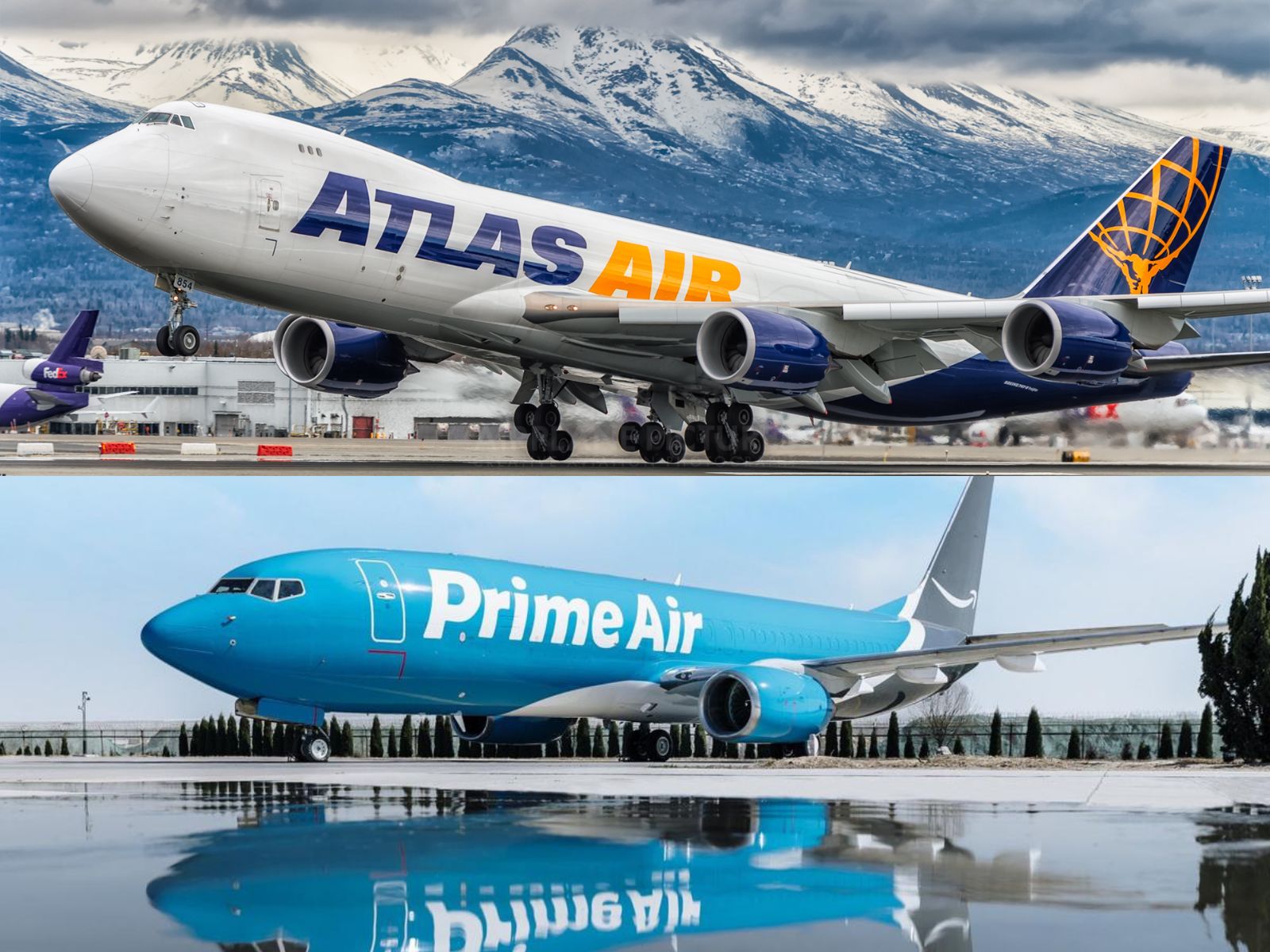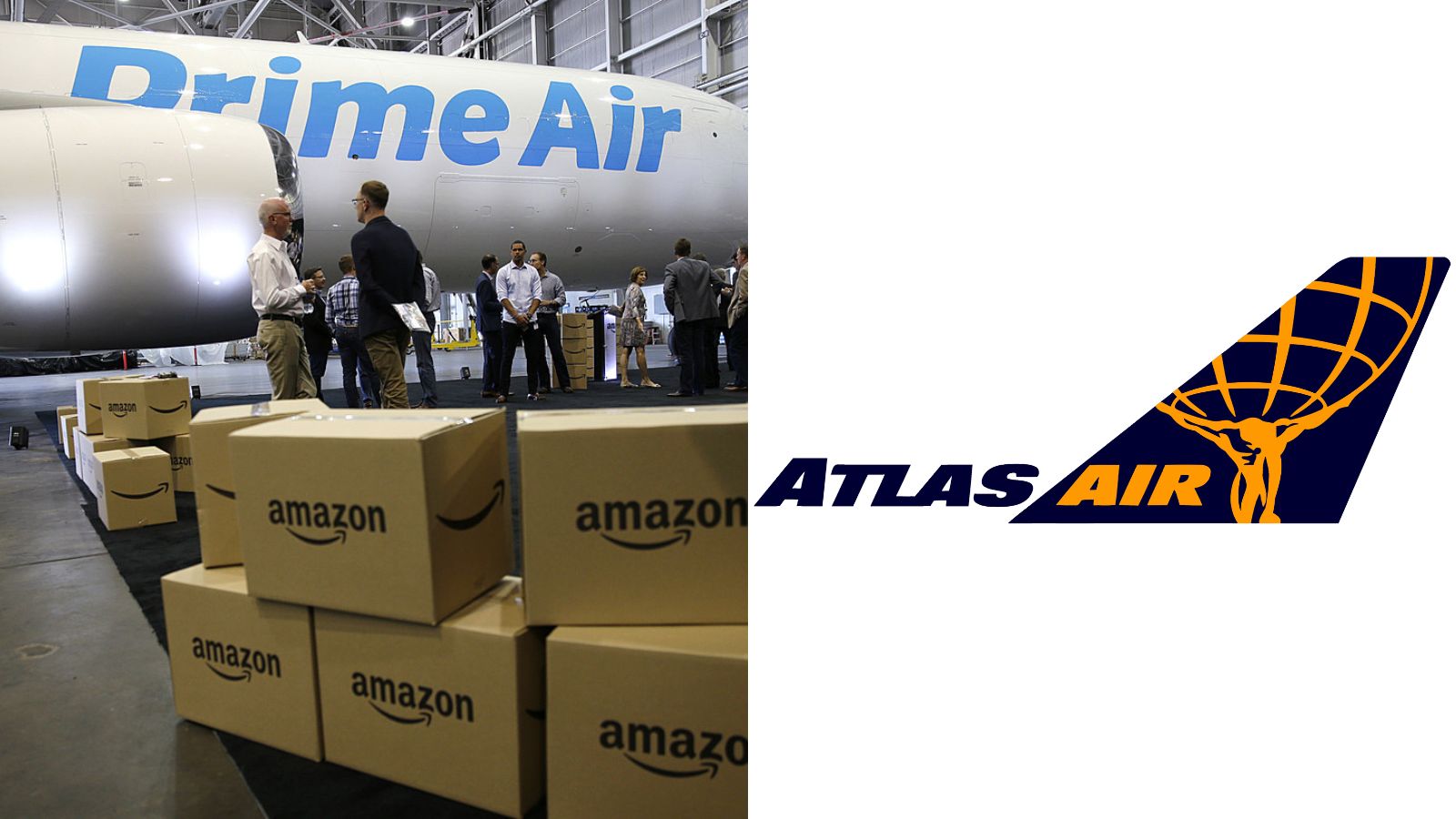Atlas Air will cease operating freighter aircraft within Amazon’s domestic parcel network by mid-next year, shifting its focus to international widebody services for a growing customer base that will soon include Chinese e-commerce giants Shein and Temu, according to CEO Michael Steen.
Both Atlas Air and Amazon have agreed to terminate contracts for Atlas to provide crews, routine maintenance, and insurance (CMI) for 25 converted freighters: eight Boeing 737-800s and 17 Boeing 767-300s. These contracts, originally set to expire in March 2026, will end early.
Simultaneously, Atlas Air Worldwide Holdings and Amazon have extended leases on 16 Boeing 767s for three more years, said Steen. These aircraft, owned by Atlas’ leasing subsidiary Titan Aviation, were initially leased to Amazon for 10 years. Amazon, which separately hired Atlas to operate the planes, can now transfer these aircraft to another operator with a CMI contract.
Titan leases a total of 19 Boeing 767 aircraft to Amazon, including two operated by rival Air Transport Services Group (ATSG). Three aircraft that were not extended still have extension options available.
Amazon directly controls the eight Boeing 737-800s, leased from AerCap, which could also be reassigned to another cargo airline.
Steen stated that Atlas Air will reallocate resources to intercontinental operations where profit potential is higher. The airline plans to add eight widebody freighters in 2024. Two Boeing 777 freighters ordered last year are expected to enter service in the fourth quarter for an undisclosed customer.
Additionally, ocean shipping giant CMA CGM has announced a CMI agreement with Atlas Air to operate two Boeing 777 freighters on trans-Pacific routes starting soon. Atlas Air also recently acquired four previously owned Boeing 747-400 cargo jets, two of which will be dedicated to Shein and Temu, joining the fleet in the third quarter.

“So strategically, as we think about the return on investment on the assets that we’re deploying, we are definitely going for the larger widebody aircraft and the intercontinental market where growth is the strongest,” Steen told FreightWaves.
Atlas Air currently operates or leases 112 aircraft, including 48 Boeing 747-400s, 10 Boeing 747-8s, and seven Boeing 777-200s, with the fleet expected to reach 120 aircraft by year’s end. Sister airline Polar Air Cargo operates nine widebody jets.
Steen pointed out that the market is saturated with narrowbody regional freighters, but the future looks bright for long-haul cargo jets. Atlas Air holds over 10% of the global widebody freighter fleet and is well-positioned to capitalize on the increasing demand for industrial goods, electronics, and a surge in e-commerce shipments.
Forecasts predict a compound annual growth rate of 3.5% to 4.5% for air cargo, compared to 1% growth in capacity across the industry and a significant wave of retirements for aging freighters. Approximately 20% of the global fleet of 650 widebody freighters are over 30 years old and nearing retirement, according to Steen.
Structural changes in the passenger sector are also boosting the need for dedicated freighters. About 60% of global air cargo volume moves on all-cargo aircraft, and 40% in passenger bellies.
However, a McKinsey study indicates only 47% of intercontinental belly hold capacity is usable for airfreight, as airlines have modified cabin interiors to accommodate more premium-class seating, which reduces space for cargo. Airlines are also reorienting networks to serve more leisure destinations with limited cargo demand.

The boom in shipments from e-commerce platforms and fast-fashion companies in China has become a key driver behind the air cargo market’s recovery, with no signs of slowing. E-commerce represented about 19% of global retail sales in 2023 and is projected to capture 41% of the market by 2027.
Shein will be the second fast-fashion retailer to sign a long-term dedicated charter agreement with Atlas Air, following Spain-based Inditex. These fashion houses frequently introduce new products with short inventory turnover times, necessitating swift delivery to customers and stores.
Atlas Air already operates dedicated freighters for Alibaba’s logistics arm and provides time-chartered aircraft for several freight forwarders and Mediterranean Shipping Co.’s new cargo airline to support their e-commerce operations.
“Their volumes are so large that they need dedicated freighters,” Steen said. “We are their flying warehouse, if you’d like.”
Shein and Temu currently use Atlas Air for short-term charters but will have full control of aircraft starting in the third quarter.
Atlas Air, the world’s largest operator of 747 freighters, has expanded its lead with the acquisition of four used 747-400s. Two cargo jets were bought from Silkway West Airlines in Azerbaijan, and two former China Airlines aircraft were acquired from U.S. trader Jetran, as reported by Cargo Facts.
Nippon Cargo Airlines recently renewed an agreement with Atlas to operate five of NCA’s 747-400 freighters between Asia and North America. Additionally, Chinese freight forwarder YunExpress signed a long-term charter agreement in March for a second Boeing 777-200 freighter.
The phaseout of Amazon flying will free up five 767s previously maintained as spares, allowing Atlas to operate them full-time for other customers, including the U.S. Department of Defense.
Steen indicated that these medium-widebody freighters will soon be placed with new customers that have signed long-term package leases, which include the aircraft, crew, maintenance, and insurance.







Leave a Reply